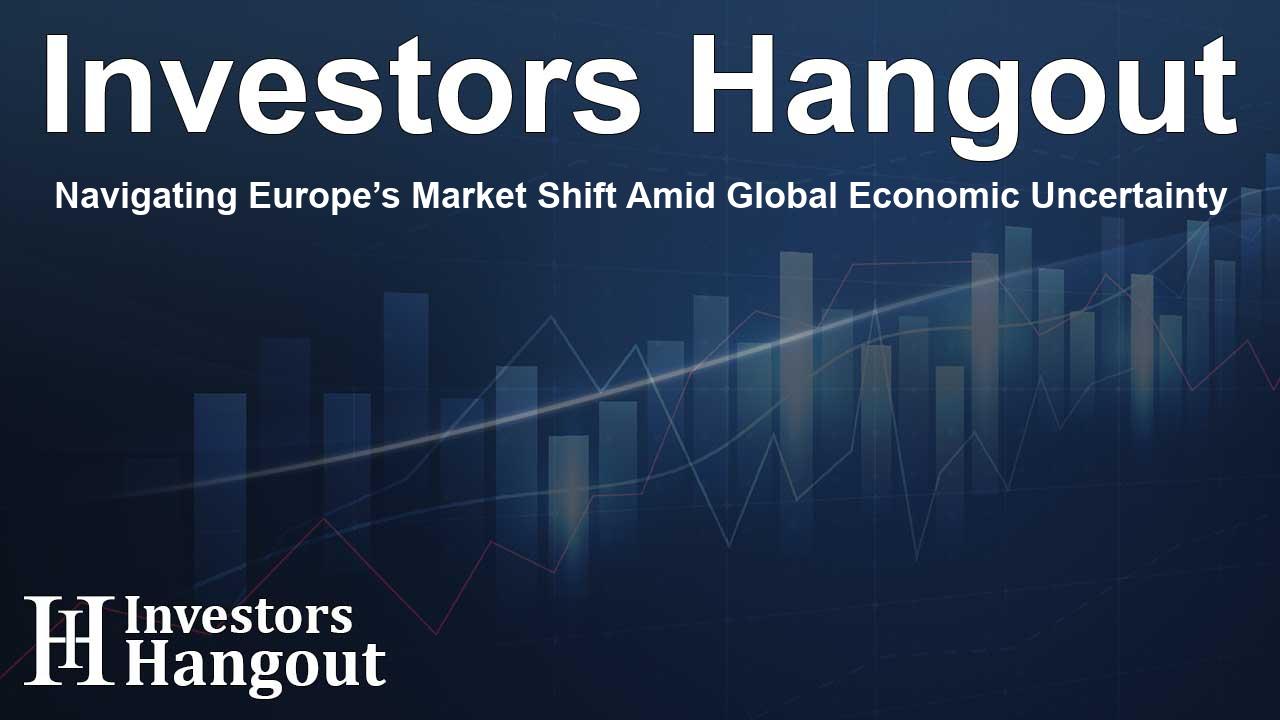Navigating Europe’s Market Shift Amid Global Economic Uncertainty

The Current Situation for European Stocks
Recently, the European stock market has encountered some serious challenges that threaten its progress. After enjoying two solid years of gains, the factors that fueled this success have started to fade, raising concerns about how stable investor confidence really is. Right now, the market is in a tricky position, facing pressures from slow economic growth and increasing tensions in international trade, especially concerning China.
Decline of Major Sectors
Key sectors that previously drove growth, such as luxury goods with major players like LVMH Moët Hennessy Louis Vuitton SE, have experienced a significant downturn. The automotive industry has also faced difficulties, while new data signals potential trouble for the healthcare sector as well, with leaders like Novo Nordisk A/S and ASML Holding NV slipping from their peak values. This decline has left Europe’s stock performance vulnerable, stirring up questions about where the next wave of growth might come from.
Investor Behavior Changes
This year, we’ve seen investors pulling billions out of funds and ETFs focused on European markets—a sharp contrast to the increasing flow of capital towards U.S. markets and global equities. This shift is mainly due to the slower pace of European stocks compared to their American counterparts, especially the well-known Magnificent Seven tech companies that are significantly boosting the U.S. market.
Changing Market Leadership
Ariane Hayate, an experienced fund manager at Edmond de Rothschild Asset Management, has pointed out that the leading sectors in Europe are shifting. Smaller, defensive sectors are stepping into the spotlight, signaling a change in strategy among investors as they navigate these uncertain waters. The truth is, Europe’s market tends to be more cyclical, heavily relying on sectors that are sensitive to economic changes, which makes it especially vulnerable to external shocks.
Effects of Global Trade & Economic Conditions
European companies have a strong reliance on Chinese demand, with around 8% of their revenues linked to that region, compared to only 2% for S&P 500 firms. However, the looming threat of escalating trade wars, particularly with the prospect of new tariffs, could increase existing pressures. Plus, the drop in oil prices further complicates the situation for energy companies like BP Plc and Shell Plc, undermining their growth projections.
Market Resilience and Future Outlook
Even though the growth outlook seems daunting, some analysts believe there are pockets of potential that could thrive despite market turbulence. For example, banks and utilities are becoming more popular, with European banks experiencing an impressive 18% rise in stock performance this year. Observers suggest that as their dividends grow, so will their stock values, which could spark renewed investor interest and potential growth.
Future Investor Strategies
As the markets evolve, the focus is likely to shift toward small and mid-cap stocks. Amelie Derambure, a multi-asset portfolio manager, highlighted the importance of keeping an eye on growth momentum indicators that could signal a recovery in economic activity, benefiting these commonly overlooked sectors. With careful investments in these areas, there's an optimistic outlook for extending the stock market rally, especially if there’s a soft economic landing.
Frequently Asked Questions
What recent changes are affecting European stocks?
European stocks are facing challenges due to declining sectors, resulting in investor withdrawals and a shift toward smaller, defensive sectors.
How do U.S. tech companies influence European markets?
The performance of major U.S. tech companies creates a benchmark that European firms struggle to achieve, which decreases investor confidence in European equities.
What role does Chinese trade demand play in Europe?
China serves as a crucial market for many European companies, with a significant share of their revenue coming from there; trade disputes could impact earnings severely.
Which sectors are currently thriving in Europe?
Banks and utilities have demonstrated resilience and are attracting investor interest due to their potential for increasing dividends and valuations.
What should investors focus on moving forward?
Investors are advised to watch small and mid-cap stocks, which may gain from an economic recovery, presenting new opportunities for growth.
About The Author
Contact Kelly Martin privately here. Or send an email with ATTN: Kelly Martin as the subject to contact@investorshangout.com.
About Investors Hangout
Investors Hangout is a leading online stock forum for financial discussion and learning, offering a wide range of free tools and resources. It draws in traders of all levels, who exchange market knowledge, investigate trading tactics, and keep an eye on industry developments in real time. Featuring financial articles, stock message boards, quotes, charts, company profiles, and live news updates. Through cooperative learning and a wealth of informational resources, it helps users from novices creating their first portfolios to experts honing their techniques. Join Investors Hangout today: https://investorshangout.com/
The content of this article is based on factual, publicly available information and does not represent legal, financial, or investment advice. Investors Hangout does not offer financial advice, and the author is not a licensed financial advisor. Consult a qualified advisor before making any financial or investment decisions based on this article. This article should not be considered advice to purchase, sell, or hold any securities or other investments. If any of the material provided here is inaccurate, please contact us for corrections.
